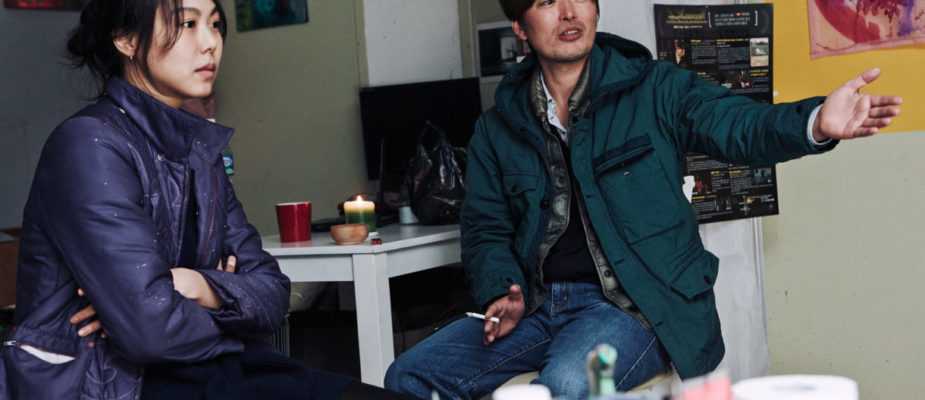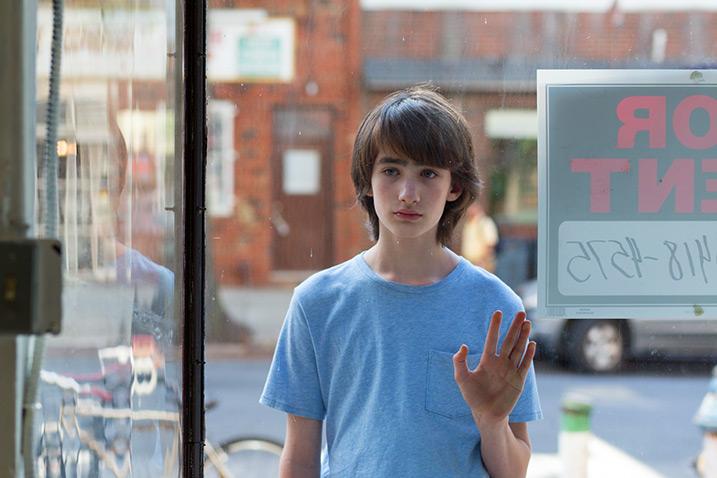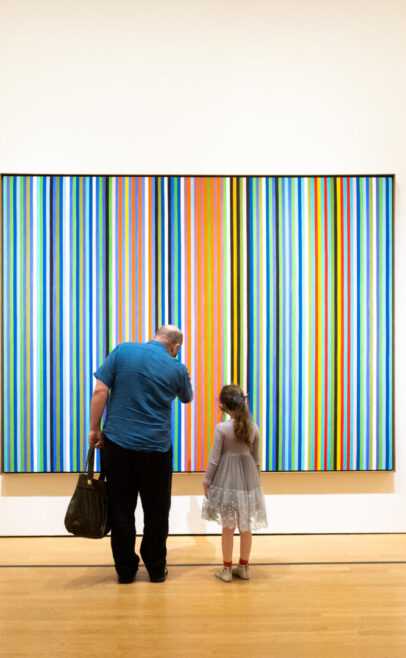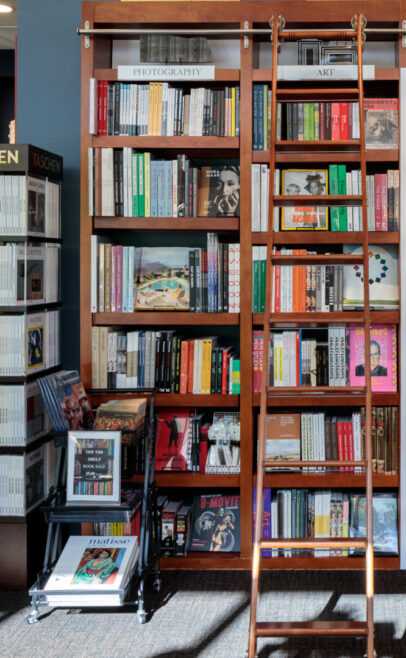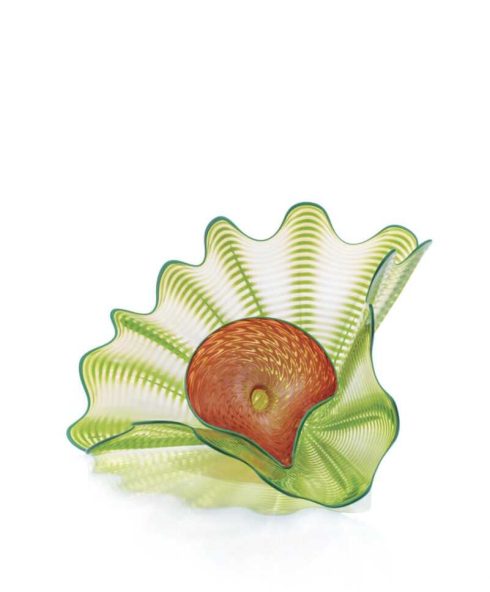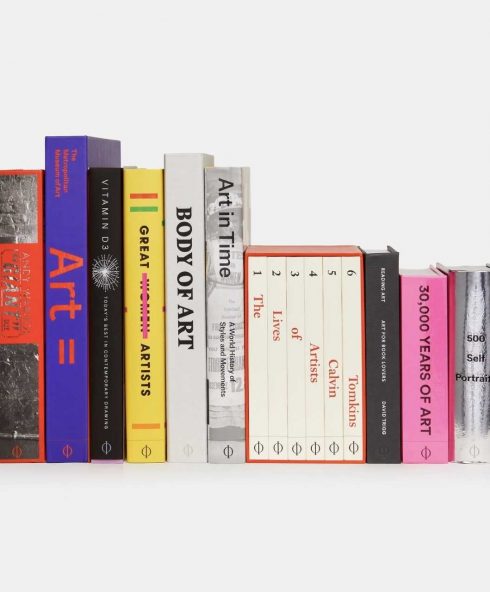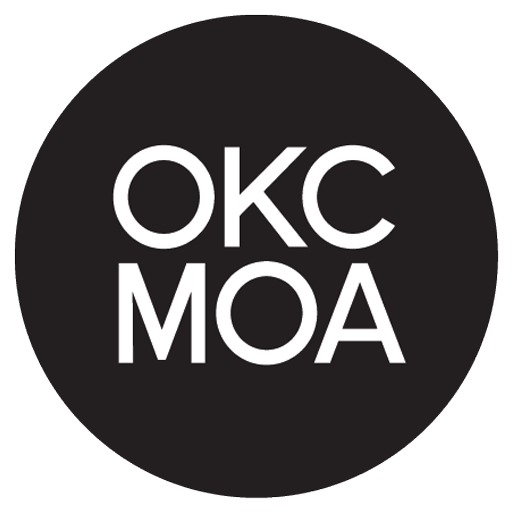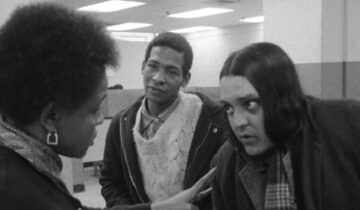Seventeen features into a filmmaking career that began in 1996, Korean master-director Hong Sang-soo has not only created his own distinct genre that exists completely apart from any other. He has also committed himself to working exclusively in that genre, employing the same semantics (narrative tropes) and syntax (how the story elements are assembled) in film after film. Among the many morals that we can glean from the fifty-something Hong’s extraordinary and extraordinarily repetitive career is that an intellectually and emotionally rich body of work can be forged from just one story, a story at this point that might plausibly mimic the director’s lived reality. Indeed, by working as fast has he has over the past decade, Hong’s life no doubt is consumed by the act of filmmaking and the experience of touring his art films—activities that ground nearly all of his recent films, including number seventeen, Right Now, Wrong Then (2015). (Eighteen, Yourself and Yours, premieres next month in Toronto, so as always, it is best to shy away from the term “latest” when discussing director Hong’s work.)
Winner of the Golden Leopard (for best picture) at the 2015 Locarno Film Festival, Right Now, Wrong Then—which commences with an on-screen inversion of the title, “right then, wrong now”—opens with an acclaimed filmmaker, Ham Chumsu (Jeong Jaeyoung), arriving prematurely in Suwon, a small city outside of Seoul, in advance of a screening of one of his films. Killing time, Chumsu visits an ancient palace where he meets Yoon Heejun (Kim Minhee), a beautiful young painter who has heard of the visiting filmmaker—though she hasn’t seen any of his films. They chat at the palace, with Yoon flattering Chumsu for awhile, before the two set off for her studio where the young painter and former model shows the older filmmaker her work. He stares intently at his very attractive host as she talks about her work. Drinks follow—as they do in every Hong film—lots of drinks, and the couple becomes inebriated, even after Chumsu insists that he’s never been drunk. The filmmaker awkwardly confesses his love. Things sour ahead of still more soju with a group of her friends; the fact that he’s married finally comes out, and matters continue to spiral. At home Yoon’s mother complains that she’s drunk too much, and the next day we see Chumsu at his Q & A, and then chatting up another young woman, Bora, while smoking outside the theatre.
And then, in true Hong fashion, Right Now, Wrong Then starts over, as “right now, wrong then,” telling the same story for a second time. Immediately we note a very subtle shift in perspectives: where the film seemed to hew to Chumsu’s basic point-of-view in the first part (we hear his voiced-over narration, he is the first to appear and the last to be seen, his eloquence or at least celebrity seems to impress Yoon for a time), part two offers more of Yoon’s interior perspective. It also includes anecdotes, like the story of a robbery, which seem important to Yoon, but which fail to register with Chumsu. What we have, in other words, is differing recollections of the same series of events. To this, Hong alters his stylistic devices, substituting a pan for a zoom here, a reframing there (so we no longer see Chumsu glaring at Yoon in her studio, for example) all to tell his narrative in a new way. Hong, indeed, rips his story and its narration apart, highlighting the various ellipses that are identified in the story’s retelling. Right Now, Wrong Then also underlines the unreliability of the narrator, but of course it’s more than this: in this original story, told twice from two perspectives, there is no truth of the matter. These two tellings circle a story that at best exists in the mind of the filmmaker, and more likely doesn’t even exist there. The narratives annunciate a story that is categorically unresolved and unresolvable.
Ultimately, Hong’s is a work about how the same story can be told differently—Right Now, Wrong Then is an object of self-(film) criticism, in this respect—without there actually being fact of the matter, the real story. In this sense it is also a film about Hong’s larger body of work—not that this is new for the director—about a set of films, the Hong Sang-soo film, to which their maker, from work to work, is making small adjustments while continuing to play by the same “genre” rules. Right Now, Wrong Then owes especially to The Power of Kangwon Province (1998), Hong’s first two-part structure and a film Right Now, Wrong Then explicitly name-checks, and Virgin Stripped Bare by Her Bachelors (2000), where the same story is told twice for the first time. The director’s seventeenth feature is as fine an introduction to his work as either of these or any other—given that the film embeds his film-to-film similarity in its two parts—and is as a good as nearly any film he’s made, period. Suffice it to say that the conceptually brilliant Right Now, Wrong Then is one of the better commercially releases this year.
Though it belongs to a much different idiom, to the middle-brow American independent film rather than the Modernist global art cinema, Ira Sachs’s Little Men (2016) is another of the year’s smarter, or better still, wiser offerings. Jake (Theo Taplitz) is a sensitive and artistically gifted thirteen year-old who relocates with his struggling-actor-father (Greg Kinnear) and professional mother (Jennifer Ehle) to a row-house in a rapidly gentrifying corner of Brooklyn, New York. There, Jake strikes up a friendship with the friendly and charismatic Tony (Michael Barbieri), the second-generation son of the family’s inherited retail tenant. Jake and Tony pass the time playing video games, discussing Tony’s dream of becoming an actor, and hanging out with the latter’s wider circle of friends (including the young woman for whom Tony pines). Little Men is that very rare work that explores male teenage friendship, without devolving, too much at least, into the topicality of bullying. Then again, Little Men is about more than homosocial male bonding: continuing the director’s interest in queer relationships (cf. the solid Life Is Strange; 2014) Little Men also contends with Jake’s bourgeoning homosexuality, which Sachs gracefully registers in a series of longing gazes and Tony’s (meaningful to Jake, at least) touch.
Sachs’s latest is also distinguished by its insights into the economic realities of twenty-first century New York. This is a film about the process of gentrification, with Jake’s parents preparing to evict Tony’s mother when the latter can’t afford her rent. What really sets Little Men apart is its refusal to vilify, even as it acknowledges a fundamental inequity: Jake’s parents do need more rent to afford to keep the house that they inherited in the first act, and Tony’s mother (who does have a propensity to act somewhat badly out of her circumstantial frustration) cannot afford to stay in the neighborhood under any condition other than the charitable one that she had transacted with Jake’s grandfather. Little Men understands the economic privilege that has fueled Brooklyn’s archly bohemian gentrification, as well as its consequences for those who exist without inheritance or trust fund, who must work to pay the rent (which they can’t afford) rather than to produce art and achieve personal fulfillment. Gentrification becomes personal for the two young men, though in Sachs hands, it is not allowed to ruin their lives, even after their circumstances change for good.
Right Now, Wrong Then screens on Thursday, September 1, at 5:30 & 8 pm, and Little Men, on Friday, September 2-Sunday, September 4, at 5:30 & 8 pm.
